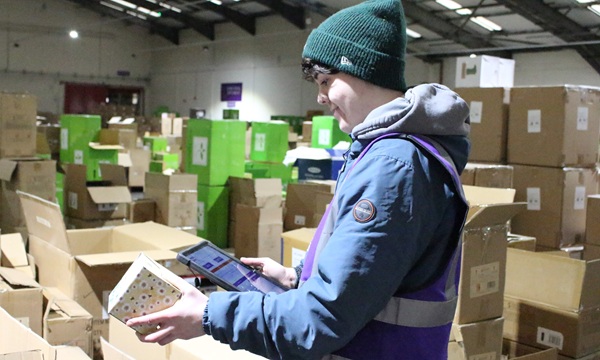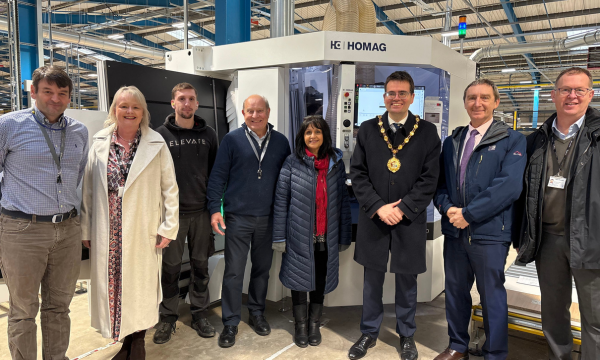
GUEST COLUMN:
Ben Cottam
Head of Wales
Federation of Small Businesses

Technology has always been a key driver of business success, but the pace of digital innovation today is opening up new opportunities for small businesses in ways that would have been hard to imagine even a decade ago.
Whether it’s AI-powered customer service, smart data analytics, or remote working capabilities, businesses that embrace digital tools effectively are seeing real benefits.
The impact of technology on small businesses is clear. AI-driven chatbots, for example, are enabling companies to improve customer service without tying up staff. Inventory management tools are helping businesses optimise stock levels, reducing waste and improving cash flow.
As the Federation of Small Businesses’ (FSB) own research has shown, digital capability is not only a pre-requisite but a competitive advantage when it comes to trade and export opportunities. In retail, access to real-time footfall data is allowing businesses to plan better, respond to customer trends, and work more collaboratively within town centres. The tools are there, but the key is knowing how to use them to solve real business challenges.
However, connectivity remains a barrier to making the most of these digital opportunities, especially in rural Wales. Many businesses still struggle with mobile data coverage, which is critical for making use of cloud-based software and AI tools while working on the move.
Broadband infrastructure has improved, but there are still gaps, and we see businesses in more peripheral areas frustrated by the slow pace of rollout. While network providers are working on this, and collaborations with mobile operators are helping to address some of the challenges, businesses are often left waiting longer than they should.
Good connectivity is a fundamental enabler of economic growth. Strong broadband infrastructure allows businesses to operate more flexibly, giving them access to a broader workforce and making remote working a more viable option. It also helps level the playing field, ensuring that businesses in rural areas can compete just as effectively as those in city centres. We have seen how businesses that have invested in digital solutions – whether through e-commerce, automation or smarter logistics – have been able to grow despite economic uncertainty.
There is also a growing role for data in shaping business decisions. In towns and city centres, smart technology is being used to track footfall and consumer behaviour, providing valuable insights for businesses. Understanding how people move through a town at different times of the day or year can help retailers and hospitality businesses plan staffing, stock and opening hours more effectively. But the real potential lies in collaboration – when businesses work together with local authorities and other stakeholders to use this data in a way that benefits the wider economy.
While digital tools offer clear advantages, it is important for businesses to be strategic in how they adopt them. There is no one-size-fits-all solution, and not every new piece of technology will be the right fit for every business. The key is to start with the challenge, not the solution. What problem needs to be solved? Is there a digital tool that can help? And does the business have the skills and infrastructure in place to make the most of it?
There is a lot of training available to help businesses get to grips with AI, data analytics and digital tools. The FSB is working alongside government and other partners to provide guidance and support, but businesses need to take the first step by assessing their own needs. Like any other investment, adopting digital tools should be approached with a clear understanding of what the business is trying to achieve.
With Welsh Government’s investment summit on the horizon, it’s important not only that we show we have a plan for improving digital infrastructure but the skills to exploit it alongside the businesses keen to invest in their own capability.
Digital innovation is not just about making processes more efficient; it is about unlocking new opportunities for growth. Whether it is expanding into new markets, improving customer experience, or making smarter use of data, small businesses that embrace technology in the right way can put themselves in a strong position for the future. But to truly benefit, we need to ensure the right infrastructure is in place and that businesses are supported in making informed decisions about the tools they adopt. The potential is there – it is now about making sure it is fully realised.













